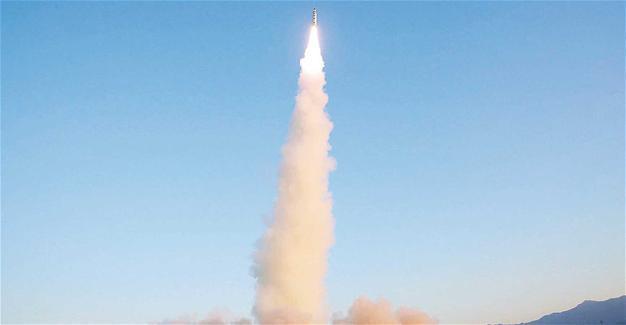UN denounces North Korea, but no sign of any action
UNITED NATIONS/SEOUL
 The U.N. Security Council denounced North Korea’s weekend missile launch, urging members to “redouble efforts” to enforce sanctions against the reclusive state, but gave no indications of any action it might take.
The U.N. Security Council denounced North Korea’s weekend missile launch, urging members to “redouble efforts” to enforce sanctions against the reclusive state, but gave no indications of any action it might take. Pyongyang’s test of the intermediate-range ballistic missile on Feb. 12 was its first direct challenge to the international community since U.S. President Donald Trump took office on Jan. 20.
At a news conference on Feb. 13, Trump said: “Obviously North Korea is a big, big problem and we will deal with that very strongly.”
Trump did not speak of any planned response but Washington’s U.N. ambassador Nikki Haley said in a statement: “It is time to hold North Korea accountable - not with our words, but with our actions.”
She issued the statement after an emergency Security Council meeting on Feb. 13 that was called by the United States, Japan and South Korea to discuss the North’s missile launch.
U.S., Japanese and South Korean military officials held a teleconference on Feb. 13 in which they condemned the launch as “a clear violation” of multiple Security Council resolutions. The United States “reaffirmed its ironclad security commitments” to South Korea and Japan, the Pentagon said.
A South Korean official said the United States has planned to deploy “strategic assets” in upcoming annual military exercises with South Korea because of the increased threat from the North. The exercises usually start in March.
The official did not say what assets might be used. In the past, these have included B-2 bombers, F-22 stealth fighter jets and nuclear-powered submarines.
South Korea’s intelligence agency estimates the solid-fuel missile launched by North Korea on Feb. 12 has a range of more than 2,000 km (1,240 miles), the South’s Yonhap news agency said. That would bring large parts of China, Taiwan, Japan, Russia and the tip of the Philippines within range.
The North has tested missiles with a range of over 3,000 km (2,000 miles) in the past, but has said it is on the verge of testing an intercontinental ballistic missile (ICBM), which could eventually threaten the continental United States, which is about 9,000 km (5,500 miles) from North Korea.
“We are keeping an eye out, thinking data and technology from the latest test can be applied [to an ICBM],” South Korean Defense Minister Han Min-koo told lawmakers on Feb. 14.
Trump tweeted “It won’t happen!” after North Korean leader Kim Jong Un said in January the North was close to an ICBM test.
















